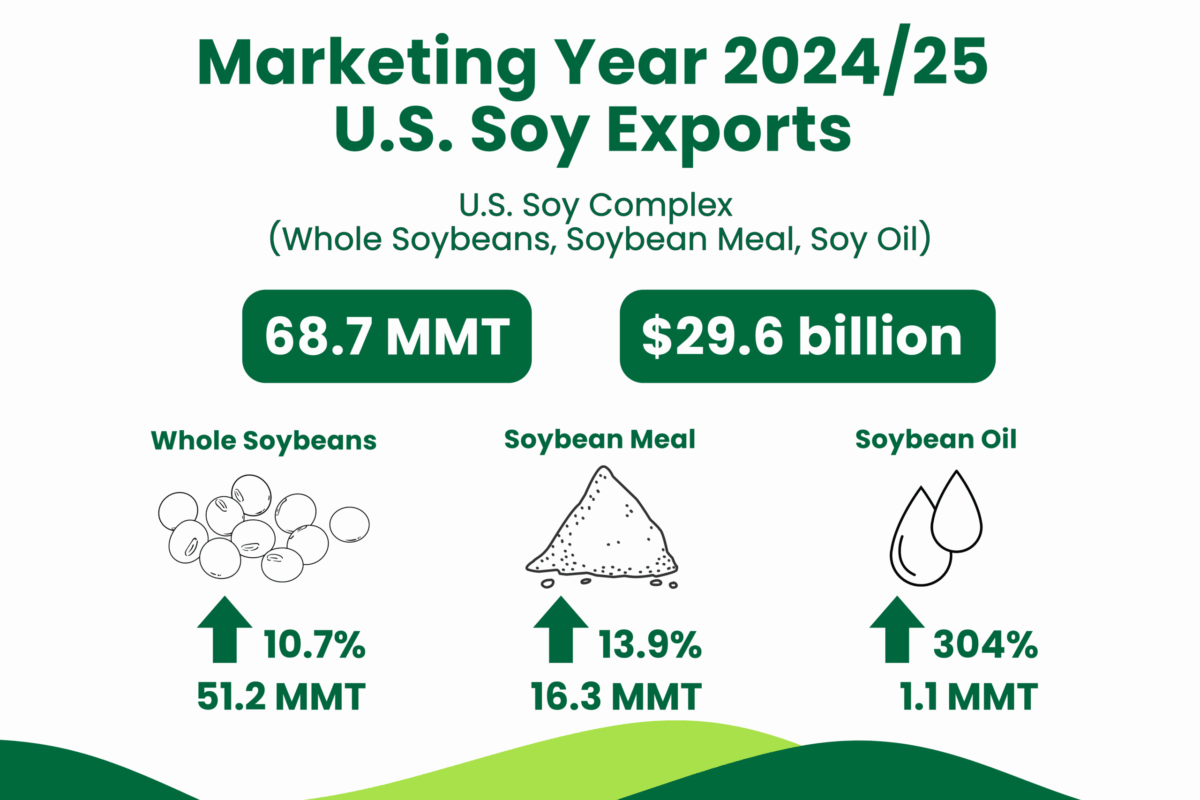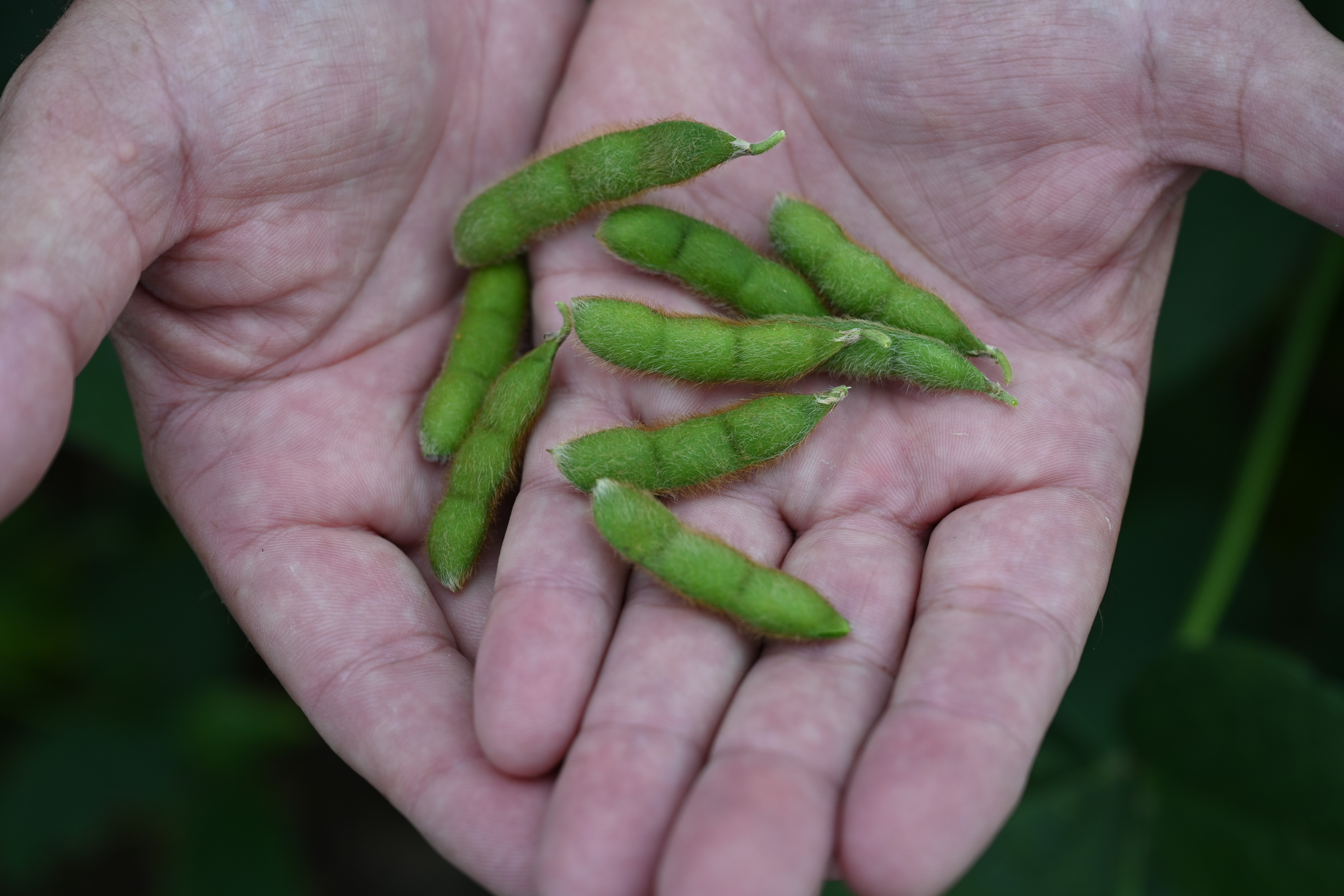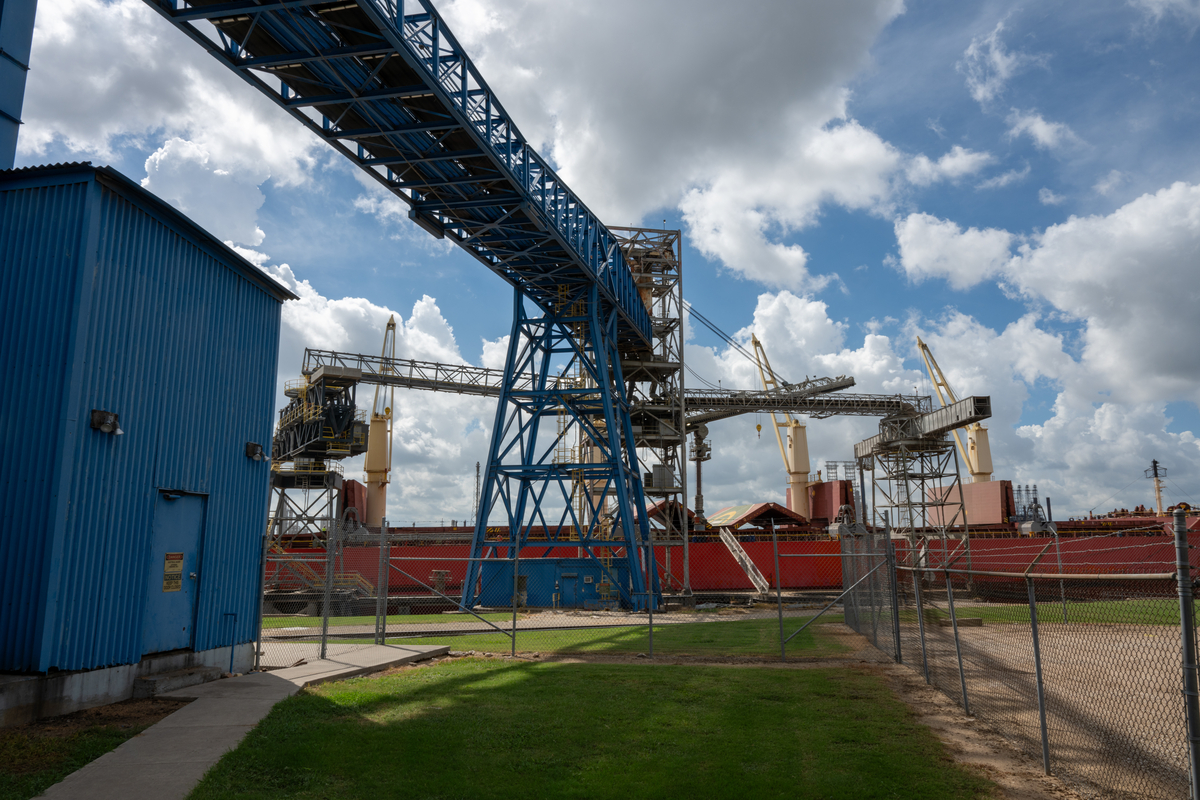Biodiesel Breakthrough: Making a Difference One Gallon at a Time

What started as a solution to use up excess soybean oil is now the answer to other prominent issues in the U.S. That may sound like a tall tale, but it’s all in the facts — biodiesel increases demand for U.S. soybean oil while providing a host of benefits along the way.
The National Biodiesel Board, supported in part by your soy checkoff, is on a mission to continue building demand for this domestically produced green fuel, whether that’s filling your tank with biodiesel and renewable diesel, heating homes with Bioheat® fuel or taking to the skies as sustainable aviation fuel.
“Our goal is to seize the opportunity ahead of the biodiesel and soybean industries by growing the market for biodiesel in its many forms,” National Biodiesel Board CEO Donnell Rehagen says. “Our vision is to exceed 6 billion gallons by 2030, potentially doubling the market from where it stands today at 3 billion gallons. And, with investments in feedstocks, to reach 15 billion gallons by 2050.”
Biodiesel Brings Added Value for Farmers
The relationship between U.S. soybean farmers and biodiesel is mutually beneficial. Demand for quality protein sources like soy is rising quickly, which could once again lead to an excess supply of soybean oil. Biodiesel production keeps demand strong for that soybean oil, creating more value for soybean farmers. In the last decade alone, biodiesel demand for soybean oil has grown 300%.
“As demand continues to rise, growth of biodiesel and renewable diesel production and use will be key to profitability at the farm level as well as throughout the value chain,” Rehagen says. “The soybean industry will benefit directly as biodiesel and renewable diesel use increases.”
Biodiesel products are popular with customers ranging from municipal fleets to farmers because they’re cleaner than petroleum products. In fact, biodiesel is registered as a fuel and fuel additive with the Environmental Protection Agency. Because biodiesel can be used in any diesel engine with little or no modification to the engine or fuel system, it’s an easy switch for customers as well.
Contrary to popular belief, these benefits don’t come at the expense of performance. When compared with diesel fuel, B20 — a 20% blend of biodiesel with diesel fuel — provides similar fuel economy, horsepower, torque and haulage rates.
It’s been clear for decades that biodiesel is a sustainable solution when compared with its petroleum-based counterparts. These environmental and technical benefits are apparent, as evident through research. But now there is reliable evidence showing the health benefits of biodiesel as well.
Discover New Benefits of Biodiesel
Thanks in part to your investment in the soy checkoff, the National Biodiesel Board in partnership with Trinity Consultants conducted and published a groundbreaking study that demonstrates biodiesel’s positive impacts on Americans’ health.
Pat Hobbs, a soy checkoff farmer-leader from Missouri who represents the checkoff on the National Biodiesel Board, says he was excited by the quantified health benefits captured in the results of the study.
“I’ve been around this a long time, and it was even kind of surprising to me that the study showed that it immediately provides an improvement in community health and those improvements can be measured,” Hobbs says. “It does this by reducing pollution, what we call particulate matter, in markets where it’s hardest to decarbonize: heavy-duty transportation and heating.”
Key findings from this research on just 13 sites across the country show substantial community health improvements that can be quantified in reduced medical costs and health care benefits, including:
- 340 premature deaths prevented annually.
- 46,000 fewer sick days used per year.
- A 45% reduction in cancer risk when B100 is used in heavy-duty trucks such as semis and an 86% reduced cancer risk when biodiesel is used for home heating oil.
- 17,000 fewer lung problems per year as a result of using biodiesel to heat homes.
- 203,000 fewer or lessened asthma attacks per year based on vehicle use of B100.
- And $3 billion in avoided health costs annually.
These benefits, quantified for 13 sites, are just the tip of the iceberg for biodiesel’s benefits across the country. Hobbs says this study reinforces the value the checkoff investment in biodiesel brings to soybean farmers by pairing the economic benefits with the social responsibility of knowing their crop is making a difference in the lives of others.
“Feedstock producers like myself have an important role to play in lessening challenges for these heavily polluted areas while building a better, cleaner market for soybean oil, so it’s wonderful that we have such an amazing use for it,” Hobbs says.



